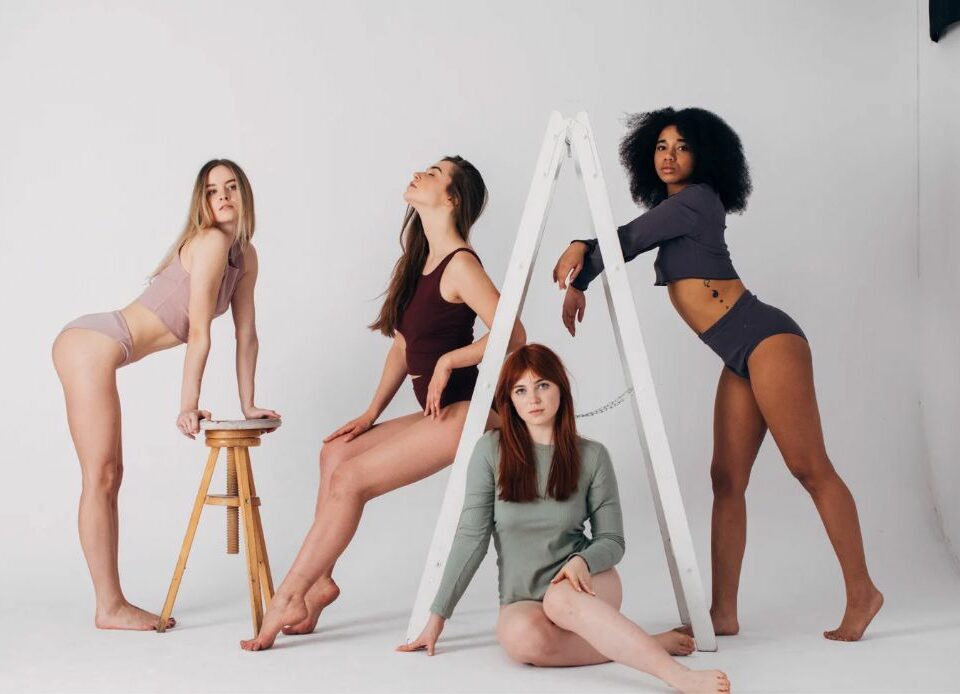The Pros and Cons of Boutique Modelling Agencies vs Big Agencies

When pursuing a career in modeling, choosing the right agency is a crucial decision. Two main paths lie before aspiring models: boutique modeling agencies and big agencies. But the question remains: Why would someone choose one over the other?
Pros of Boutique Modelling Agencies
Personalized Attention and Support
Boutique modeling agencies pride themselves on offering personalized attention and unwavering support to their models. With a smaller roster of talents, these agencies have the luxury of dedicating more time and resources to each individual. Models receive guidance, mentorship, and assistance catering to their needs and aspirations.
Niche Specialization and Expertise
Boutique agencies often specialize in specific niches or markets within the modeling industry. They develop unparalleled expertise in those domains by focusing their efforts on a particular segment, such as high fashion or plus-size modeling. Models associated with boutique agencies benefit from the agency’s in-depth understanding of their chosen niche, increasing their chances of success.
Collaborative and Inclusive Environment
In the intimate setting of a boutique agency, models experience a collaborative and inclusive environment. Working closely with agency staff and fellow models fosters a sense of community and support. This atmosphere encourages models to grow together, share insights, and uplift one another in their journey toward success.
Flexibility and Freedom for Models
Boutique agencies often offer models greater flexibility and freedom to shape their careers. They are open to negotiations, allowing models more control over their contracts and terms. This flexibility proves advantageous for models seeking independence or juggling personal and professional commitments.
Cons of Boutique Modelling Agencies
Limited Resources and Opportunities
The smaller size of boutique agencies can result in limited resources and fewer opportunities than their larger counterparts. With a smaller client base and fewer industry connections, these agencies may need help to provide a wide range of modeling assignments to their models.
Restricted Network and Reach
Boutique agencies typically have a more localized or regional focus, which may limit their network and reach. Models associated with boutique agencies might find it challenging to secure international or high-profile modeling assignments, as these agencies often need more global connections than big agencies.
Potential Lack of Professionalism
While boutique agencies excel in providing personal attention, some may need more professionalism and structure than big agencies. This may manifest in areas such as contract management, financial transparency, or the handling of professional relationships. Models need to carefully assess the professionalism of a boutique agency before committing to it.
Uncertainty of Stability and Growth
Smaller agencies need more certainty regarding stability and long-term growth. Market fluctuations and changes can disproportionately affect boutique agencies, making it harder for models to establish consistent and sustainable careers. Models must consider the agency’s track record and stability before deciding.
Pros of Big Modelling Agencies
Vast Resources and Industry Connections
Big modeling agencies possess vast resources and boast strong industry connections. They have established relationships with renowned designers, photographers, and brands. Models signed with big agencies gain access to many high-profile opportunities that can significantly enhance their careers.
Wide Range of Opportunities and Exposure
Models associated with big agencies enjoy exposure to diverse modeling opportunities. These agencies represent models across various fields, including runway, editorial, commercial work, and brand endorsements. This exposure increases the likelihood of securing lucrative contracts and gaining valuable industry experience.
Established Reputation and Credibility
Big agencies carry well-established reputations and credibility within the industry. Their name recognition and long-standing presence enhance a model’s professional reputation, opening doors to more prestigious assignments and collaborations. The association with a reputable agency can significantly boost a model’s career prospects.
Access to International Markets
Big agencies often have a global presence, granting models access to international markets. This allows models to work in different countries, experience diverse cultures, and broaden their professional horizons. International exposure from big agencies can lead to exciting and lucrative modeling assignments.
Cons of Big Modelling Agencies
Competition and Limited Individual Attention
With an extensive roster of models, big agencies face intense competition within their ranks. Models may receive less individual attention and guidance than boutique agencies, as the agency focuses on many talents. Models must navigate the competitive environment while seeking opportunities for personal growth.
Potential Pressure and High Expectations
Big agencies often have higher expectations and can subject models to significant pressure to meet industry standards and achieve success. The intense competition within the agency can create a demanding environment, requiring models to strive for excellence constantly. Models must be prepared to handle the pressures associated with a big agency.
Contracts and Exclusivity Agreements
Big agencies may require models to sign contracts that restrict their freedom and limit their ability to work with other agencies or pursue certain opportunities. Models should carefully review the terms and conditions of any contracts, ensuring they align with their long-term goals and ambitions.
Possible Loss of Creative Control
Working with big agencies may result in models needing more control over their creative direction and personal image. Models may be required to adhere to certain beauty standards or conform to the agency’s preferred aesthetic. This may limit their ability to express their individuality and unique style, requiring them to balance personal expression and meet industry expectations.
How to Choose: Find Your “Why”
When deciding between a boutique modeling agency and a big agency, models must dig deep and find their “why.” Several factors should be considered:
Personal Goals and Aspirations
Models should evaluate their personal goals and aspirations to determine which agency aligns best with their vision for their career. Consider what you hope to achieve as a model and which agency’s values and offerings align with those goals.
Experience and Expertise Required
Different modeling assignments may require specific experience and expertise. Models should consider whether a boutique or big agency can provide the necessary support and opportunities in their desired field of modeling. Assess the agency’s track record in relevant markets or niches.
Agency Reputation and Track Record
Conduct thorough research on the reputation of the agencies under consideration. Examine their client list, success stories, and the experiences of models who have worked with them. A solid understanding of an agency’s track record can provide insights into its credibility and potential for advancing a model’s career.
Industry Trends and Market Demand
Stay informed about current industry trends and market demands. Understanding these trends can help models assess which type of agency is better positioned to provide relevant and lucrative opportunities. Consider the type of modeling work in high demand and the agency’s ability to secure such assignments.
FAQs
How do boutique modeling agencies find clients?
Boutique modeling agencies employ various methods to find clients, including networking, referrals, scouting, and attending fashion events. They establish relationships with designers, photographers, and industry professionals to create opportunities for their models.
Do big agencies provide better training opportunities?
Big agencies often offer dedicated training programs and resources to help models develop their skills and enhance their potential. These agencies have the advantage of experience and a wide range of professionals who can contribute to a model’s growth.
Can a model switch between boutique and big agencies?
Models can switch between boutique and big agencies based on their evolving needs and career goals. However, it is essential to review existing contracts, exclusivity agreements, and potential conflicts of interest before switching.
Are big agencies more likely to secure high-paying contracts?
Big agencies have broader networks and stronger industry connections, increasing the likelihood of securing high-paying contracts. However, a model’s individual talent, market demand, and negotiation skills also significantly ensure lucrative opportunities.
Which type of agency is better for aspiring models?
The suitability of a boutique modeling agency or a big agency depends on the individual model’s preferences, career goals, and circumstances. Aspiring models should carefully consider the pros and cons outlined in this article and seek guidance from industry professionals to make an informed decision.
Conclusion
In conclusion, choosing between a boutique modeling agency and a big agency requires careful consideration. Each option offers unique benefits and drawbacks. Models must reflect on their aspirations, evaluate the opportunities and resources provided by each type of agency, and assess their fit within the industry. By finding their “why” and aligning it with their chosen agency, models can embark on a path that propels their modeling career forward.
Read More: Height Boosting Techniques: A Comprehensive Guide





